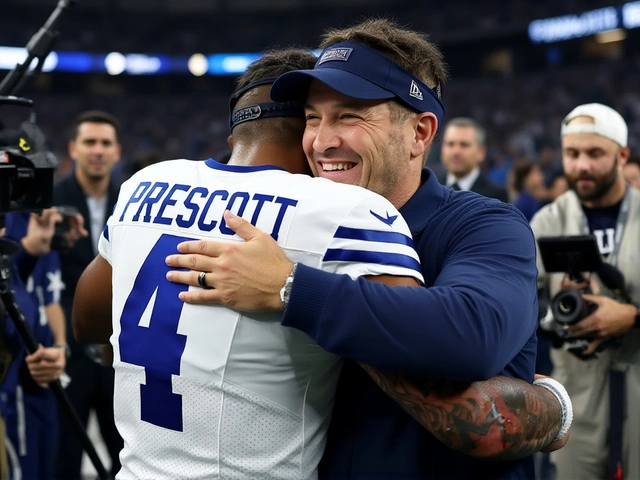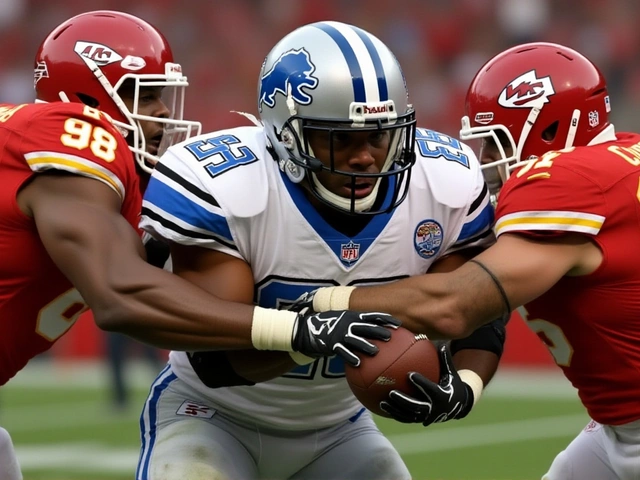Forget what you’ve heard about money being the only kind of wealth worth chasing. Your health is wealth—lose it, and you’ll see how fast the rest seems pointless. Think about it: every billionaire stuck in bed with chronic pain would pay millions to feel healthy again. But you don’t need millions. You need a few small, smart habits that actually stick.
Skipping sleep, grabbing junk food, never moving further than your car door—these add up, and not in ways you want. If you’re not feeling alert in the morning or you’re running out of breath just climbing stairs, that’s your body pinging for help.
But here’s the kicker: you don’t have to do a complete life overhaul. Pick one thing—like swapping soda for water or taking a brisk walk after dinner. These tiny choices pay big dividends, and you’ll notice the difference faster than you think. Looking after yourself now is like putting money in a high-interest savings account. It compounds, and before you know it, you’re richer for it.
- Why Health Matters More Than Money
- Smart Habits for Everyday Wellness
- Eating Well on Any Budget
- Simple Ways to Stay Active
Why Health Matters More Than Money
If you’ve ever been sick, you already get it: nothing else matters when your body or mind is off. That saying, health is wealth, rings true because when you're healthy, you can do pretty much anything—work, travel, enjoy time with friends. Without it, even the best opportunities slip through your fingers.
Here’s a stat that slaps: in 2023, the World Health Organization found that chronic diseases like heart disease, diabetes, and cancer lead to over 70% of deaths worldwide. Many of these are linked to choices we make every day. Money can cover hospital bills, but it sure can’t buy back a working heart or lungs once you’ve lost them.
Your earning power depends on your health too. People struggling with low energy, stress, or pain miss more work and tend to earn less over the years. One U.S. study found unhealthy workers spend an average of 6 more sick days per year, which adds up to lost income and higher medical costs.
Check this out—some numbers that make it real:
| Factor | Impact |
|---|---|
| Average extra sick days for unhealthy workers (per year, U.S.) | 6 |
| Chronic diseases share of global deaths | 70%+ |
| Estimated lost U.S. productivity due to poor health (annual) | $225.8 billion |
So if you’re chasing a bigger paycheck, don’t overlook your body. Good health actually boosts your performance and income in the long run. When you’ve got energy, focus, and resilience, you’re more likely to crush your goals—money just makes things easier, but health makes them possible.
Here are some reasons why putting health first pays off big time:
- You’re less likely to drain your savings on medical bills down the road.
- You get more quality years, not just more years.
- Stress goes down when you’re physically fit, which helps you make better decisions—not just for your diet, but for your wallet too.
- Healthy habits rub off on your family and friends, so it’s more than just about you.
Smart Habits for Everyday Wellness
You don’t need a PhD or a personal trainer to start feeling better. The foundation of good health is built on surprisingly simple habits, but the trick is doing them most days—not chasing perfect. Here’s the lowdown on habits that make a real difference, backed by hard data and practical results.
Start with the basics. According to the CDC, adults who get at least seven hours of sleep each night are less likely to get sick, feel stressed, or struggle with weight. It might sound obvious, but setting a regular bedtime—even on weekends—gives your body the rest it actually needs to heal, recover, and charge up for the day.
Next, hydration beats any fancy detox. Research from Harvard shows that drinking enough water supports everything from digestion to focus to smoother skin. For most people, 6 to 8 cups per day is a good place to start, and you’ll notice fewer headaches and less sluggishness when you hit that mark.
Don’t underestimate movement, either. A 20-minute walk, five times a week, can lower your risk of heart disease and kick your mood up a notch. You don’t need a gym—just make it a habit to move more than you sit. Try an after-dinner stroll, take the stairs, or stretch when you take a break at work. Little things stack up.
Meal prep doesn’t mean hours at the stove—just swap out one processed snack or sugary drink for something fresher. Grab fruit, yogurt, or a handful of nuts instead of a bag of chips. When healthier options are ready to go, you’ll reach for them more often—no willpower required.
If you pick just one thing today, make it this: find a daily ritual that feels easy enough that you won’t quit. Maybe it’s drinking a glass of water in the morning or standing up every hour if you work at a desk. Consistency is everything. Remember, health is wealth. These habits are investments, and the payouts show up in clearer thinking, better moods, and having energy to do what you actually care about.

Eating Well on Any Budget
You don’t need a padded bank account or chef-level skills to eat healthy. Grocery stores everywhere are packed with food that can fuel your body the right way without draining your wallet. Here’s a fact: canned beans, frozen veggies, and plain oats often pack the same nutrition as their fancy versions but cost way less.
The trick is to keep it simple and plan your meals. Most people who eat well on a budget do a bit of meal prepping. That means figuring out what you want to eat this week, shopping with a list, and cooking a few things in advance—nothing complicated, just basic stuff like batch-cooking rice, grilling some chicken, or making a big salad.
Here’s how you can start:
- Buy in bulk—foods like brown rice, whole wheat pasta, and lentils are cheaper that way.
- Frozen fruit and veg are almost always less expensive and just as good for you as fresh, sometimes better since they’re picked and frozen at peak ripeness.
- Stick to the outer aisles at the grocery store—produce, dairy, eggs, and meat are usually found there while the middle aisles are packed with pricey junk food.
- Limit takeout and pre-packaged meals. Cooking at home almost always saves money and helps you control what goes into your food.
- Don’t fall for marketing—words like "superfood" or "organic" can double the price without making much difference to your health.
Remember, health is wealth, and eating right doesn’t mean you need fancy ingredients or high-end shops. A bag of dried beans can give you dinners for a whole week for less than the price of a drive-thru meal. The small stuff, like swapping chips for fruit or water for soda, adds up fast. Your wallet and your body will thank you.
Simple Ways to Stay Active
Getting enough movement in your day doesn’t need fancy equipment or expensive gym memberships. The key is to slot activity into your usual routine so it feels seamless, not like another chore. Studies from the CDC say adults should aim for 150 minutes of moderate movement each week, but you don't have to do it all at once. Break it into chunks—10 minutes here, 20 minutes there—the benefits are the same.
Try some of these straightforward options that fit busy schedules:
- Take short walks after meals. Just a 10-minute stroll helps digestion and counts toward your weekly activity goals.
- Swap the elevator for stairs whenever possible. Climbing stairs regularly can help keep your heart and legs strong.
- Do some bodyweight moves like squats, lunges, or push-ups during TV ads. No setup, no gear, no excuses.
- Dance to your favorite songs in the living room. It’s fun, and you’ll be surprised at how many calories a quick dance-off burns.
- If you’re glued to your phone or desk, set a timer to get up every hour and stretch or walk around your space.
Want proof that these tiny tweaks add up? Check out this quick breakdown:
| Activity | Time (per day) | Calories Burned (weekly estimate) |
|---|---|---|
| 10-minute walk (twice) | 20 min | 600 |
| Using stairs (5 minutes) | 5 min | 250 |
| Dancing (15 minutes) | 15 min | 700 |
If you add these up, you’re putting in over 1,500 calories burned a week from simple movements. That much regular effort can cut your risk of heart disease, diabetes, and depression—not bad for things you can do without leaving your house or office. Remember, health is wealth, and investing a little movement daily keeps your "bank account" in the green.





